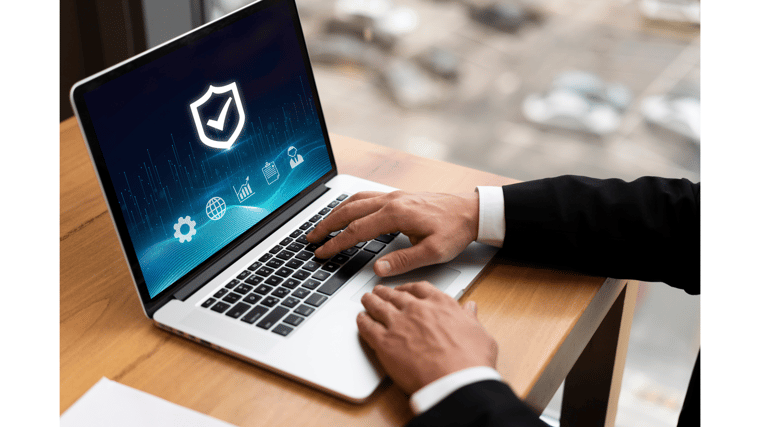Implementing proper cybersecurity measures and ensuring online security has become essential for businesses. As the digital landscape continues to evolve, cyber attacks are becoming more sophisticated and opening the door to technological vulnerabilities.
Implementing these four cornerstones of cybersecurity can significantly enhance your organization’s security posture and protect your company from cyber attacks. Remember, in cybersecurity, prevention is better than a cure.
1. Two-Factor Authentication (2FA)
Two-factor authentication, or 2FA, adds an extra layer of security beyond passwords by requiring users to provide two types of verification before they can access an account. This usually involves a time-sensitive code sent to your mobile device or email, which must be entered with the login credentials.
2FA makes it much more difficult for hackers to gain unauthorized access, as even if they have the user’s login credentials, they will be thwarted without the second factor. By implementing 2FA, businesses can prevent unauthorized access, protect sensitive information and maintain customer trust.
2. Strong Password Practices
Creating strong, complex passwords is crucial to preventing unauthorized access to accounts. Instead of relying on guessable passwords like “123456” or “password,” opt for longer, intricate combinations of upper and lowercase letters, numbers and special characters. A mix of unrelated words or phrases can further enhance complexity.
Reusing passwords across multiple accounts can increase vulnerability, so you should avoid recycling them across various accounts. Regularly changing passwords can add another layer of protection against cyber attackers.
3. Limiting Local Admin Rights
Granting local administrator rights to every user in your network can lead to security vulnerabilities. After all, you wouldn’t share your personal information with anyone you met, right?
Following the Principle of Least Privilege (PoLP) ensures that authorized users only have the necessary access they need to perform their jobs. Limiting local admin rights can prevent accidental or intentional misuse of privileges that could lead to data breaches or malicious system compromises.
4. Air Gapping Backups
Air gapping is a powerful security measure that involves physically isolating a device or network from others, which keeps sensitive data offline and out of reach from cyber attacks. By air gapping your data, along with secure offsite data storage and regular backups, you can safeguard critical information.
Thriveon and Cybersecurity
Cybersecurity is an ongoing effort that requires constant vigilance and adaptability to stay ahead of emerging cyber threats. At Thriveon, we know how essential it is to protect your company and meet cybersecurity compliance requirements. That’s why we offer cybersecurity compliance services so you can expand your competitive edge and maintain true compliance standards.
Schedule a meeting today and start protecting your business.
